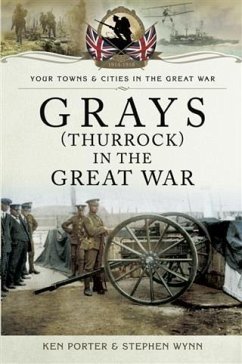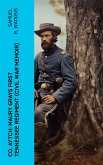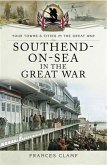Grays (Thurrock) in the Great War tells the story of Grays and the wider Thurrock area from the outbreak of the Great War until the peace of 1918. The Docks at nearby Tilbury were the source of much employment in the area for both fathers and sons alike. They also played their part in the war, but not as a hub of military deployments.In May 1915 the German spy Augusto Alfredo Roggen, a Uruguayan born in Montevideo, arrived at Tilbury on board the SS Batavia, which had sailed from Rotterdam in Holland. On his arrival in England he made his way to Scotland to carry out his spying activities at the Loch Long torpedo range. He was captured, found guilty and executed by firing squad at the Tower of London on 17 November 1915.In July 1915 the German Naval officer and pilot, Gunther Plschow, made good his escape from Donington Hall POW camp in Leicestershire and made his way safely back to Germany by hiding himself on board one of the many ships that sailed from Tilbury. He became the only German POW to escape from Britain and make it back to Germany during the First World War.The Kynochs munitions factory was situated near Fobbing on the site of what had previously been Borleys Farm. The site, which made shell cases, detonators, cordite and acetone for the British war effort, was so vast that it included its own housing estate for its workers, a hospital and a railway line. It became so big that it actually became known as Kynochtown and was a major source of employment in the area, particularly for women.There were Prisoner of War camps at Horndon House Farm, Puddledock Farm and Woodhams Quarry in West Thurrock which housed over 150 German prisoners.The Thurrock area also played an important part of protecting London from seaborne invasion up the River Thames with the help of Tilbury Fort and Coalhouse Fort at East Tilbury.
Dieser Download kann aus rechtlichen Gründen nur mit Rechnungsadresse in A, B, BG, CY, CZ, D, DK, EW, E, FIN, F, GR, HR, H, IRL, I, LT, L, LR, M, NL, PL, P, R, S, SLO, SK ausgeliefert werden.









